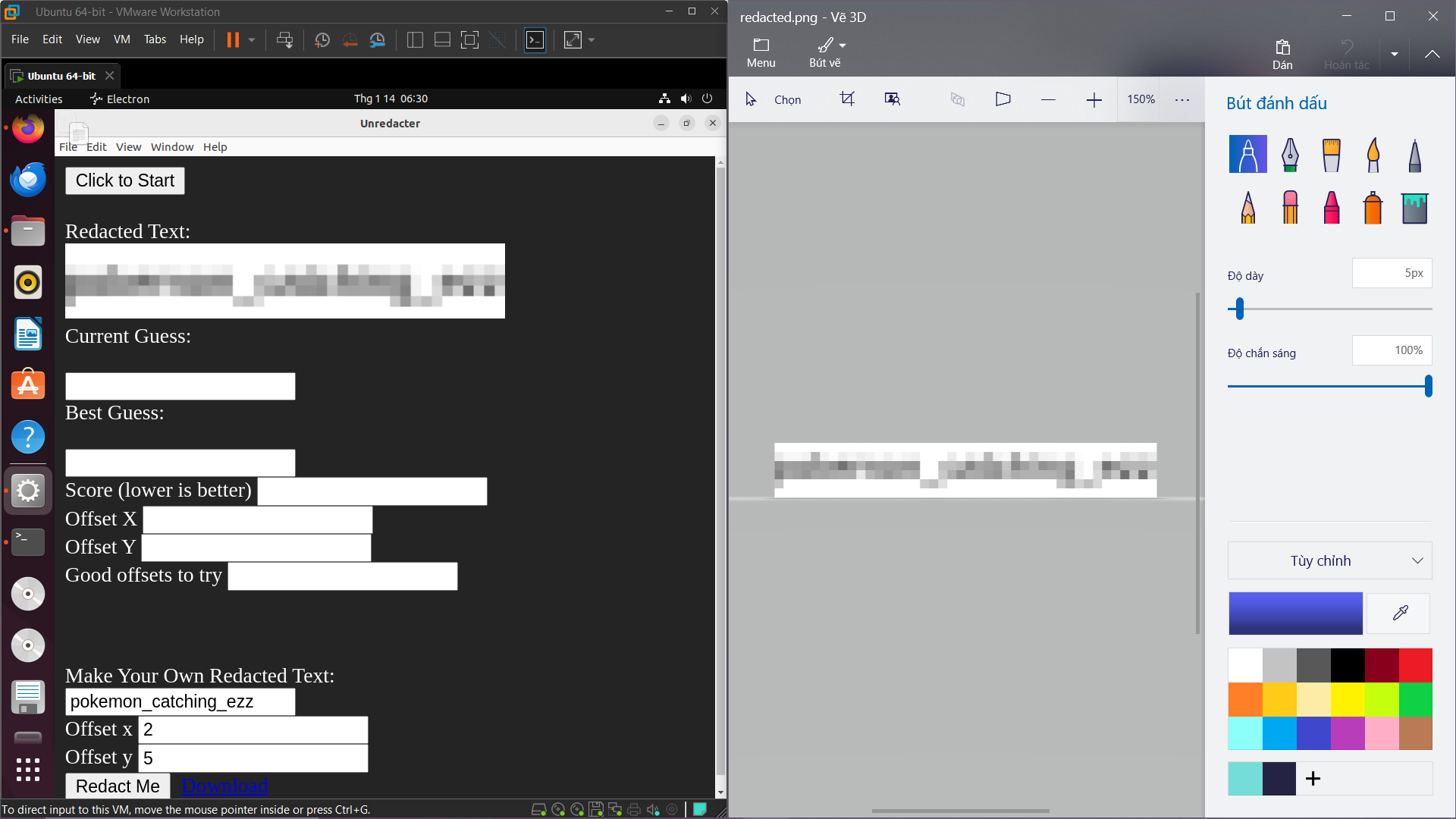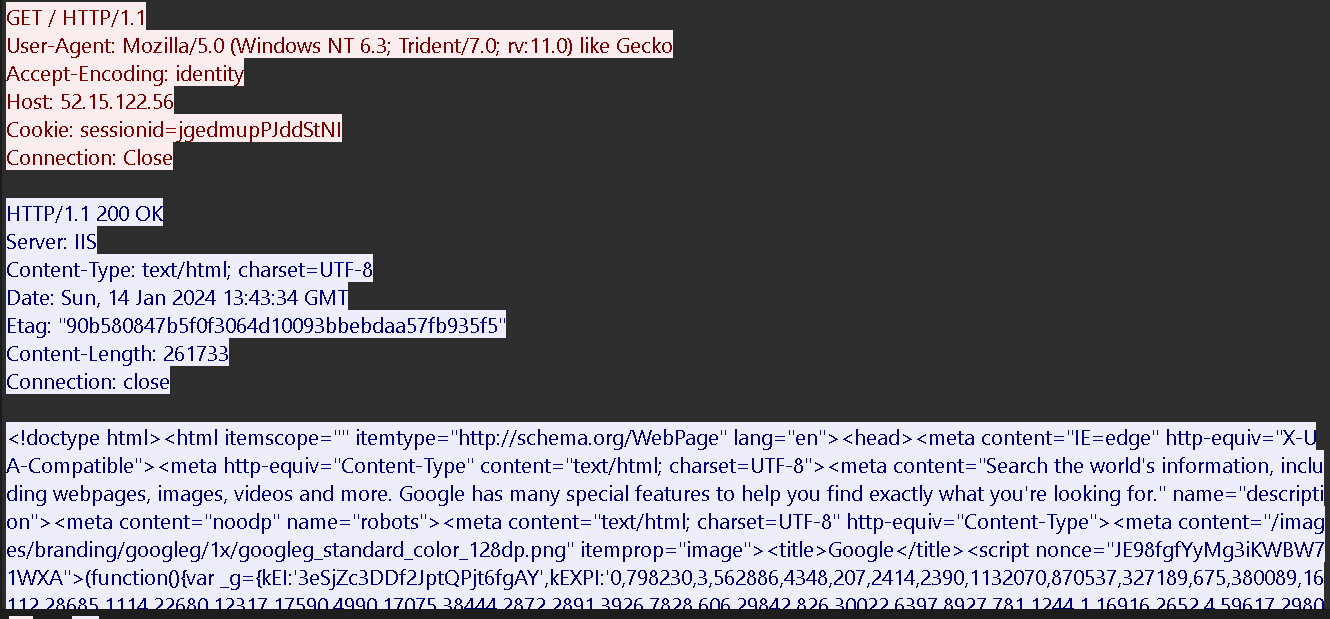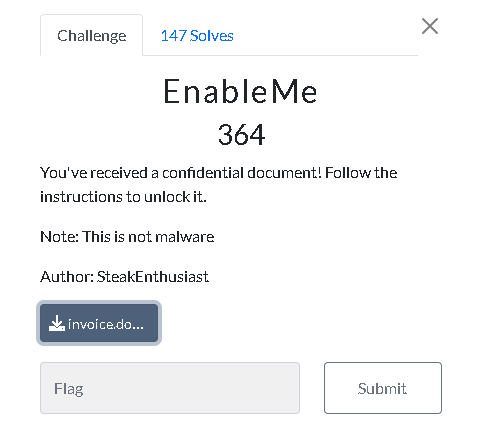UofTCTF
UofTCTF
I participated in the UofTCTF 2024 I solved all forensics challenge,and this is my write-up for most forensics challenge and challenge of IoT
Secret Message 1
it’s pdf file so we open it we saw this
1
2
pdftotext secret.pdf
cat secret.txt |grep uof
flag: uoftctf{fired_for_leaking_secrets_in_a_pdf}
Secret Message 2
it’s png so we open it we saw this
so i searched how to fix the flag so found this article and this tool i replaced secret.png with challenge photo i make him to try automatic to figure out the picture but it gave me wrong flag so my friend did it manually by Redact me and got the flag
flag: uoftctf{pokemon_catching_ezz}
Illusion
For this challenge we are given a packet capture file, upon inspecting traffic ive noticed a lot of http traffic coming to and from a rogue IP address
Once i viewed the streams of the packets ive noticed a weird oldcss= string and reported that to my teammates, a few hours later my teammate found some interesting github trevorc2 so from trevorc2_server.py I began dissecting its functionality and recognized that it was indeed following the correct trajectory. I comprehended its operational mechanisms and endeavored to decrypt the commands transmitted through the covert HTTP channel.
1
2
3
4
5
6
7
8
9
10
11
12
13
14
15
16
17
18
19
20
21
22
23
24
25
26
27
28
29
30
31
32
33
34
35
36
37
38
39
40
41
42
43
44
45
46
47
48
49
50
CIPHER = ("Tr3v0rC2R0x@nd1s@w350m3#TrevorForget")
import random
import base64
import time
import subprocess
import hashlib
from Cryptodome import Random
from Cryptodome.Cipher import AES
import sys
import platform
class AESCipher(object):
"""
A classical AES Cipher. Can use any size of data and any size of password thanks to padding.
Also ensure the coherence and the type of the data with a unicode to byte converter.
"""
def __init__(self, key):
self.bs = 16
self.key = hashlib.sha256(AESCipher.str_to_bytes(key)).digest()
@staticmethod
def str_to_bytes(data):
u_type = type(b''.decode('utf8'))
if isinstance(data, u_type):
return data.encode('utf8')
return data
def _pad(self, s):
return s + (self.bs - len(s) % self.bs) * AESCipher.str_to_bytes(chr(self.bs - len(s) % self.bs))
@staticmethod
def _unpad(s):
return s[:-ord(s[len(s)-1:])]
def encrypt(self, raw):
raw = self._pad(AESCipher.str_to_bytes(raw))
iv = Random.new().read(AES.block_size)
cipher = AES.new(self.key, AES.MODE_CBC, iv)
return base64.b64encode(iv + cipher.encrypt(raw)).decode('utf-8')
def decrypt(self, enc):
enc = base64.b64decode(enc)
iv = enc[:AES.block_size]
cipher = AES.new(self.key, AES.MODE_CBC, iv)
return self._unpad(cipher.decrypt(enc[AES.block_size:])).decode('utf-8')
Abdelrhman = AESCipher(CIPHER)
encrypted_text = "C9XqWpYeqCIn8Dk8gCVtpdg47vm8e8peFqkfQJ6WVbUvL7ucvQ0ayWnKRBF2GI+ltFBWNMa+wawqeuvFK61RGvKVWogAqAVg4J7qmScn+HRF0QZFgEunXlAduM+16nnf"
decrypted_text = Abdelrhman.decrypt(encrypted_text)
print(decrypted_text)
flag: uoftctf{Tr3V0r_C2_1s_H4rd_T0_D3t3c7}
EnableMe
we have docm file so i tried olevba on it
1
olevba invoice.docm
and i got this vba
Sub AutoOpen()
Dim v6 As Variant, v7 As Variant
v6 = Array(98, 120, 113, 99, 116, 99, 113, 108, 115, 39, 116, 111, 72, 113, 38, 123, 36, 34, 72, 116, 35, 121, 72, 101, 98, 121, 72, 116, 39, 115, 114, 72, 99, 39, 39, 39, 106)
v7 = Array(44, 32, 51, 84, 43, 53, 48, 62, 68, 114, 38, 61, 17, 70, 121, 45, 112, 126, 26, 39, 21, 78, 21, 7, 6, 26, 127, 8, 89, 0, 1, 54, 26, 87, 16, 10, 84)
Dim v8 As Integer: v8 = 23
Dim v9 As String, v10 As String, v4 As String, i As Integer
v9 = ""
For i = 0 To UBound(v6)
v9 = v9 & Chr(v6(i) Xor Asc(Mid(Chr(v8), (i Mod Len(Chr(v8))) + 1, 1)))
Next i
v10 = ""
For i = 0 To UBound(v7)
v10 = v10 & Chr(v7(i) Xor Asc(Mid(v9, (i Mod Len(v9)) + 1, 1)))
Next i
MsgBox v10
End Sub
so i convert it to python code and i run it
1
2
3
4
5
6
7
8
9
10
v6 = [98, 120, 113, 99, 116, 99, 113, 108, 115, 39, 116, 111, 72, 113, 38, 123, 36, 34, 72, 116, 35, 121, 72, 101, 98, 121, 72, 116, 39, 115, 114, 72, 99, 39, 39, 39, 106]
v7 = [44, 32, 51, 84, 43, 53, 48, 62, 68, 114, 38, 61, 17, 70, 121, 45, 112, 126, 26, 39, 21, 78, 21, 7, 6, 26, 127, 8, 89, 0, 1, 54, 26, 87, 16, 10, 84]
v8 = 23
v9 = ''.join(chr(v6[i] ^ ord(chr(v8)[i % len(chr(v8))])) for i in range(len(v6)))
v10 = ''.join(chr(v7[i] ^ ord(v9[i % len(v9)])) for i in range(len(v7)))
print(v9)
print(v10)
flag: uoftctf{d0cx_f1l35_c4n_run_c0de_t000}
Baby’s First IoT Flag 4 (IoT)
it’s firmware.bin so we extract the content of it
1
2
binwalk -extract --dd=".*" firmware1.bin
cd _firmware1.bin.extracted
we saw many files but we know there is backdoor file so we try to grep it
1
grep -r backdoor
so we know have password let’s get the flag
1
printf 'IoTBackDoor\n\0' | nc 35.225.17.48 4545
flag: uoftctf{Develper_BackDoor}
This post is licensed under CC BY 4.0 by the author.









